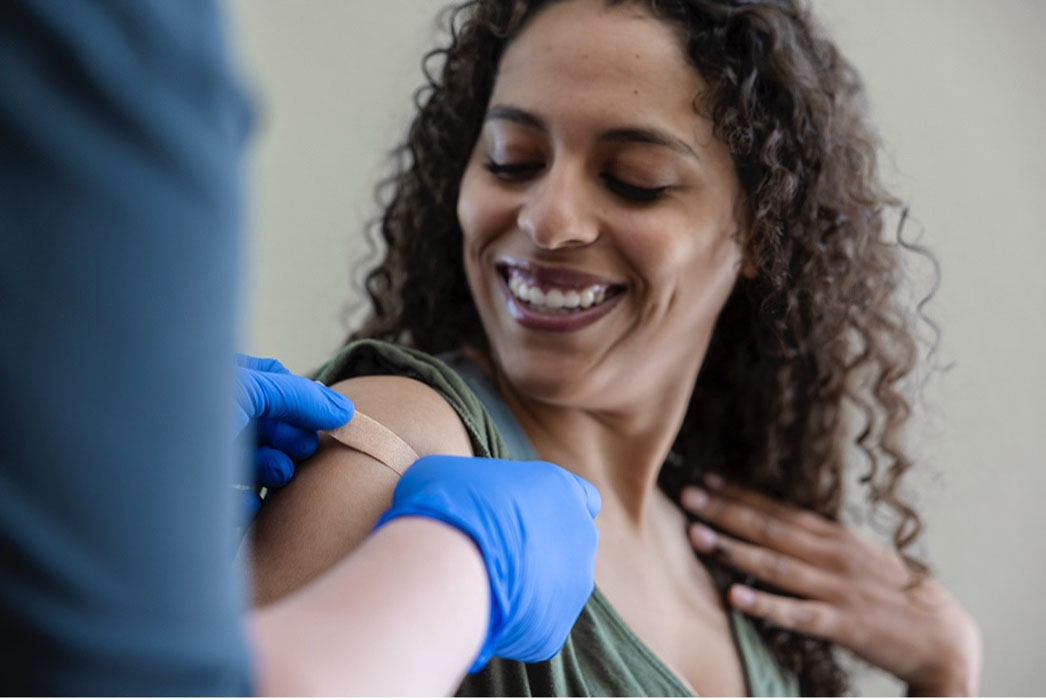Optimizing vaccination status is a key element of care for patients with cancer, the American Society of Clinical Oncology (ASCO) said in the March 2024 publication of its new Vaccination of Adults With Cancer guideline. However, it requires assessing each patient’s unique health profile and active interaction and coordination among healthcare providers, including primary care practitioners, pharmacists, and nursing team members.
The guideline panel included ONS member Kristine B. LeFebvre, DNP, RN, NPD-BC, AOCN®, who is also an oncology clinical specialist for ONS. The panel developed its recommendations from a systematic review of the evidence from 102 studies published from January 1, 2013–February 16, 2023.
Broadly, the panel recommended that all adults with cancer be up to date on the following vaccines:
- Influenza
- Respiratory syncytial virus
- COVID-19
- Tdap or Td
- Hepatitis B
- Recombinant zoster
- Pneumococcal
- Human papillomavirus
Additionally, some adults with cancer who have coexisting health conditions may require one or more of the following vaccinations as well:
- Haemophilus influenzae type B
- Hepatitis A
- Meningococcal
- Inactivated poliovirus
- Measles, mumps, and rubella
- Varicella
- MVA (monkeypox)
- Monkeypox and smallpox (ACAM2000)
“Some vaccination and revaccination plans for patients with cancer may be affected by underlying immune status and the anticancer therapy received. As a result, vaccine strategies may differ from the vaccine recommendations for the general healthy adult population vaccine,” the guideline authors wrote. Read the full guideline for a complete overview of specific vaccine considerations for individual patient situations.
The panel identified systemic barriers that may affect a patient’s ability to access vaccines and comply with the recommendations, including:
- Inequities related to race, ethnicity, or health insurance status
- Vaccination cost
- Limited availability in low- and middle-income areas of the world
Open patient-clinician communication is key to overcoming those barriers and improving vaccine uptake, the guideline authors wrote. Oncology nurses and other clinicians are “the vaccine resource for their patients, providing guidance on the safety and efficacy of vaccines before, during, and after cancer treatment.” Oncology nurses support shared decision-making by delivering dedicated patient and caregiver education about the risks and benefits of recommended vaccinations; providing authoritative resources, such as fact-based handouts and websites; and actively listening for patients’ attitudes and beliefs around vaccination and potential barriers (e.g., access, cost, risks).
The new guideline’s release elevates several advocacy opportunities for oncology nurses:
- Speaking out for patients and nurses as panel members, like Kristine LeFebvre did on the ASCO guidelines panel
- Engaging in patient education discussions about vaccinations and communicating their decisions to the cancer care team
- Telling your policymakers to support legislation and funding that eliminate barriers to vaccination
Learn more about how you can turn your advocacy into action on our Get Involved page, or reach out to healthpolicy@ons.org to directly connect with the ONS health policy team.






